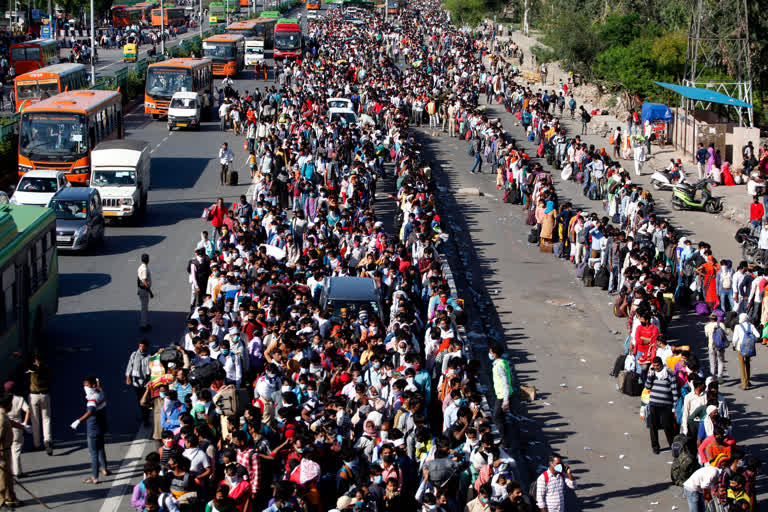Hyderabad: While the three-week-long nationwide lockdown of India by the Modi government to slow down the spread of the coronavirus is backed by sound epidemiological logic, the execution of the policy leaves much to be desired.
One major problem has been the lack of advance warning by the government, which has led to complete chaos as hundreds of thousands of migrant workers from big cities are trekking back home to their small towns and villages and getting stranded at state borders.
Similarly, no thought was given to how the poor, who make their living on daily wages would survive three weeks of lockdown.
Rather, a package to alleviate their plight was announced a few days after the lockdown began. A well-devised plan would have put the protection for the poor in place before announcing the lockdown.
The lack of forethought is also apparent from the closure of all factories, including those making medical devices at a time when this industry needs to ramp up production to provide the weapons in the battle against the coronavirus.
There is ample evidence from other countries that effective social distancing (lockdown being the extreme form of it) slows down the spread of the coronavirus.
And despite the problems with execution, the lockdown will slow down the spread of the coronavirus in India. However, it would be foolish to assume that a three-week lockdown by itself will exterminate the virus.
The extra time that the lockdown buys should be used to ramp up capacity for testing, contact-tracing, isolation, and medical care (ventilator acquisition, more ICU beds, and more non-ICU beds for less critical patients). Special efforts should be made to provide Personal Protective Equipment for all healthcare providers because they are the front-line soldiers in the battle against the coronavirus.
Also, unlike some mixed messaging on the efficacy of masks for general public (motivated by the desire to keep a limited supply of masks for healthcare workers), adequate supply of masks for everyone will protect everyone.
Since it is impossible to test everyone and even asymptomatic people with infections can spread the virus, everyone will be protected if everyone wears a mask in public as is the case in much of East Asia.
Read:COVID 2019: From Malaysia, Pakistan to Nizamuddin's crowed lanes
The economic cost of the current lockdown in India, as well as future lockdowns - a quite likely scenario, is going to be huge, with the poor bearing a disproportionately large burden of it.
However, this is going to be dwarfed by the burden of the disease for the poor if the coronavirus becomes widespread in India.
